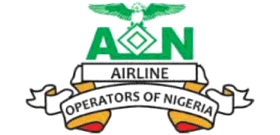 Nigerian Airlines lost $60m, N60bn in 2021 to bird strikes, delayed, cancelled flights
Nigerian Airlines lost $60m, N60bn in 2021 to bird strikes, delayed, cancelled flights
Airline Operators of Nigeria (AON), the umbrella body of indigenous carriers in the country have decried the loss of $60 million and N60 billion in 2021 to issues of bird strikes, delayed and cancelled flights, respectively in Nigeria.
This is as the AON declared that it never compelled any of its members to fix the current controversial N50,000 minimal base fare on any economy seat to any of the nation’s airports, saying that the fares have always been there.
Speaking on Wednesday at the secretariat of the airline at the Murtala Muhammed Airport Two (MMA2), Lagos the leadership of the AON lamented poor infrastructure at the entire airports in the country as some of the major challenges confronting the growth of the airlines, stressing that these are making them lose billions of naira annually.
Barr. Allen Onyema, the Vice President of AON, who spoke on behalf of the others said that rather than castigate the operating airlines for flight delays and cancellations, the flying public should be informed of the poor infrastructure at the airports, which he said led to delays and cancellations.
He pointed out that 99 per cent of delayed flights and cancellations were due to the poor working environment in Nigeria and called on the government agencies to improve the facilities on the ground for the benefit of the flying public.
According to Onyema, Air Peace alone in 2021 suffered 14 bird strikes, which affected its engines, while so far in 2022, the airline had suffered four bird strike incidents.
Apart from this, he explained that Air Peace in one month had refunded about N1 billion to passengers due to delayed and cancelled flights, while Aero Contractors also refunded over N500 million because of the same reasons in January 2022.
He insisted that this would not have happened if the agency responsible for chasing away the wildlife was up and doing in the discharge of its duties, while the refunds due to delayed and cancelled flights would have also gone to the purse of the airlines.
He said: ‘The issue of bird strike has been very worrisome and this affects safety, too. Air Peace alone had 14 bird strikes last year and so far this year, we have had four bird strikes. The airlines are not the ones who are supposed to be chasing wildlife. To replace just one engine, it causes us millions of dollars.
“For an airline to have 14 bird strikes in 10 months, it is enough to take that airline out of business. In total, the indigenous airlines lost about $60 million to bird strike incidents in 2021 alone, while to delayed and cancelled flights, we lost over N60 billion in the past year. Though the government is trying, the government can do more for us. Or else, the airlines will close shop.”
Besides, he insisted that the airlines would never compromise safety in their operations no matter the pressure.
On the alleged fixing of airfares to a minimum of N50,000 for one-way flights by the airlines, Onyema debunked the claim.
He reiterated that the airlines as a body never sat down to fix price, maintaining that the N50,000 in the inventory had always been there.
For instance, Onyema stated that in the peak periods, especially during the yuletide season, one-way ticket on some routes goes as high as N60,000, stressing that fares are determined by the unit cost of flying to some routes.
He, however, emphasised that some of the service providers in the system had increased the cost of their services in the last few months with the approval of the Nigerian Civil Aviation Authority (NCAA).
He specifically mentioned the ground handling companies, who he accused of increasing their rates by 300 per cent late last year.
He further mentioned airport apron congestion, lack of adequate space for check-in, poor airport infrastructure, air traffic flow control, unruly behaviours of passengers and bad weather as some of the other challenges confronting the operators in the industry.
